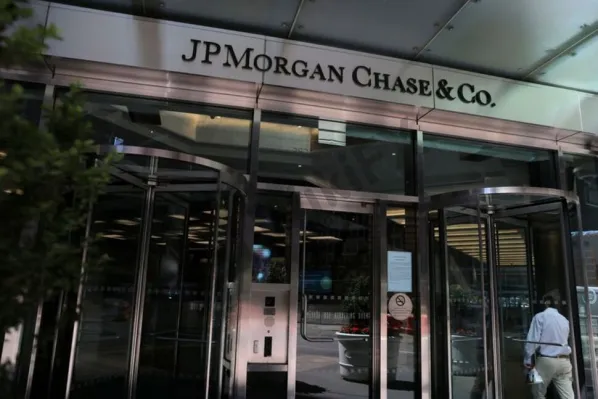
JPMorgan Chase & Co. is collaborating with KPMG to enhance how the U.S. bank monitors its traders, according to individuals familiar with the assessment, as Wall Street grapples with how to detect possible misbehavior amid a securities trading boom.
According to the sources, KPMG is looking at JPMorgan's worldwide control of traders throughout the bank's market business. The bank's income from buying and selling bonds, currencies, and equities increased to $29 billion in 2022, making it the highest among the top five banks in the United States and a near-record high.
Market volatility intensified towards the onset of the pandemic, and trading activity at investment banks and securities companies soared, adding to the burden of overseeing personnel amid greater quantities of buying and selling and big price fluctuations.
The CBOE Volatility Index, a measure of market volatility, is still higher than it was before the epidemic.
When asked why it engaged KPMG, JPMorgan stated, “We spend extensively in our compliance and surveillance systems and often engage third parties to benchmark our capabilities.”
“Such activities should not be misconstrued for anything else,” the bank said in a statement.
KPMG's London spokesperson refused to comment.
ALERTS AND WARNINGS
Compliance teams at investment banks that monitor traders depend on automated system warnings and alerts to identify and prevent any wrongdoing, which if unnoticed might result in substantial losses for the banks and regulatory attention.
JPMorgan agreed to pay a $920 million penalty and enter into a three-year deferred prosecution agreement with the US Department of Justice in 2020 for market manipulation at its trading desks in New York, London, and Hong Kong.
The bank agreed to improve its compliance efforts and disclose fixes to the DoJ under the agreement, which expires this year.
Banks must disclose suspicious transactions to watchdogs as part of their regulatory requirements when there are reasonable reasons to suspect ill intent, such as possible insider trading or market manipulation.
When market prices fluctuate abruptly and trade volumes increase, the automated systems used by banks to monitor trading may generate an avalanche of signals of anomalous behavior, making it more difficult for supervisors to discover possible conduct violations.
One such occurrence occurred in September 2022, when former UK Prime Minister Liz Truss' extreme tax-cutting measures created havoc in the British government bond market. According to one of the individuals, the volatility in UK government bonds, known as gilts, generated a deluge of compliance warnings from JPMorgan's traders.
Britain's borrowing prices rose by the most in decades, prompting the Bank of England to intervene with an emergency package to calm markets. Andrew Bailey, Governor of the Bank of England, said that circumstances in gilt trading at the time were extraordinary.
According to a second source, KPMG has conducted a review of the technology used by the financial sector to regulate trade and is currently advising JPMorgan on how to alter its systems.
According to the first source, certain modifications are already being tried, including limiting the number of warnings to compliance departments in some sectors of trade.
The number of so-called suspicious transaction and order reports reported by financial services businesses to Britain's finance watchdog, the Financial Conduct Authority, to identify possible dangers climbed by 15% in 2021, according to the regulator's most recent accessible statistics.
According to the FCA statistics, the most common danger seemed to be possible insider trading.
Keep an eye out for more Forex news.
Install the WikiFX App on your smartphone to keep up to speed on current events.
Download link: https://www.wikifx.com/en/download.html

Leave a Reply